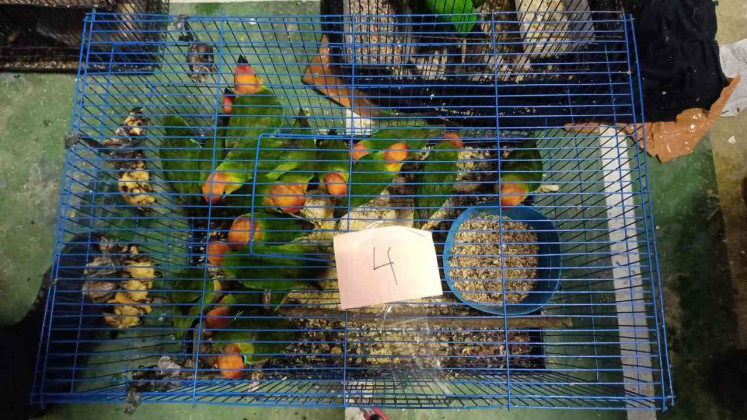Popular Reads
Top Results
Can't find what you're looking for?
View all search resultsPopular Reads
Top Results
Can't find what you're looking for?
View all search resultsClimate change could make Indonesia next hot spot of spillover infections
Scientists say that the government needs to go beyond human in preparing for the next pandemic, including sustainable development and the One Health approach.
Change text size
Gift Premium Articles
to Anyone
O
n a warming planet, the species-rich ecosystems and large human populations of Indonesia, India and Africa’s Sahel region could turn the regions into hot spots of zoonotic disease as humans come into increasing contact with wildlife, warns an article on increased viral outbreaks published on April 28, 2022 in Nature.
Citing a modeling study by researchers in the United States and South Africa published on the same date in the same journal, the article states: “Over the next 50 years, climate change could drive more than 15,000 new cases of mammals transmitting viruses to other mammals [...] when different species meet for the first time as they move to cooler locales.”
This could increase the chance for new viruses to jump into humans, or spillover events, and cause a new pandemic.
While the study looked at some 3,100 mammalian species, it emphasized the particular zoonotic threat posed by bats, the only mammal that can fly and in which COVID-19 is believed to have originated. As global temperatures rise, Southeast Asian bat species would fly farther to find suitable climates and thus encounter species outside of their established habitats.
The study, submitted to Nature a few months before COVID-19 was declared a global pandemic in 2020, was published just weeks before zoonotic outbreaks of monkeypox were reported in May in non-endemic countries, including neighboring Australia.
Read also: Indonesia on alert as monkeypox emerges in Australia
Indonesia has not detected any cases of monkeypox.


















